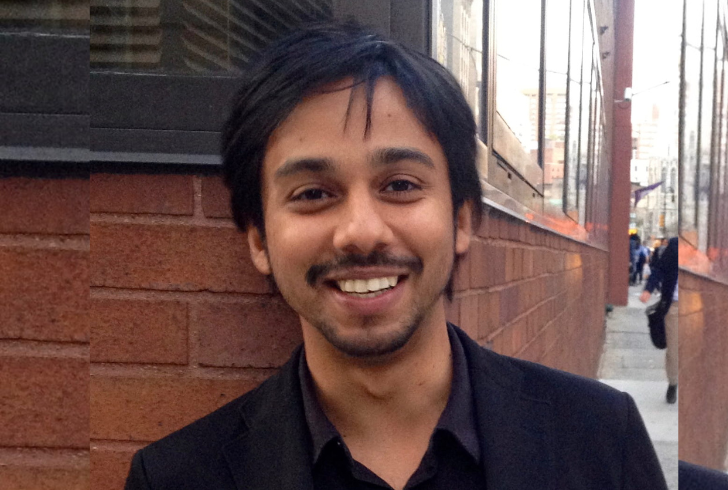Technology shapes modern life, but few examine its impact with the depth and humanity shown by MIT’s STS scholar, Professor Dwai Banerjee. Through a wide range of topics—from cancer care to computing in India—his research always circles back to one key focus: people.
Instead of approaching science and tech through devices or innovation alone, Banerjee studies how individuals experience these systems in real time. His work reveals the personal layers beneath technical advancement—those emotional, social, and cultural currents often overlooked in policy and design.
Studying Illness Beyond the Clinical
Banerjee’s acclaimed book “Enduring Cancer” dives into the lived reality of cancer patients in Delhi, focusing mostly on the city’s working-class residents. As he discovered, a diagnosis does far more than just disrupt physical health—it can shake someone’s sense of identity and stability.

Instagram | dwaibanerjee | Professor Dwai Banerjee shows how cancer reshapes life beyond treatment.
He observed that technology enables diagnoses and treatments, but it doesn’t address emotional and psychological needs. That gap prompted him to document how patients navigated these challenges, while hospitals gradually adapted by offering palliative and emotional care services.
As Banerjee writes, cancer often triggers “a sense of being unmoored from prior certainties,” highlighting how medical systems must evolve to serve the whole patient, not just their illness.
Connecting History, Anthropology, and Technology
Although Banerjee trained as a cultural anthropologist, he blends history into his work with ease. Whether analyzing blood’s symbolism in India through the book “Hematologies” or writing about the early days of computing, he looks for context in every subject.
After completing degrees in sociology at the Delhi School of Economics, he earned his PhD at New York University, where his fieldwork on cancer care began. His path wasn’t always obvious—he originally planned to pursue computer engineering but found himself drawn to the humanities instead. That shift sparked a career focused on understanding how real people live with—and shape—technology.
Currently an associate professor in MIT’s Program in Science, Technology, and Society, Banerjee uses that interdisciplinary space to research freely, combining field interviews, archival records, and deep social analysis.
Tracing India’s Tech Story
Banerjee’s upcoming book explores India’s post-independence ambitions in technology. After gaining sovereignty in 1947, the country aimed to develop a homegrown computing industry. Early government strategies encouraged domestic innovation in software and hardware manufacturing.

Freepik |Misbah | India began with software and hardware goals, then shifted to outsourcing due to global pressure and policy changes.
Yet over time, global tech firms overtook those efforts, and India shifted from building tech to supplying global talent. As Banerjee shows, this wasn’t inevitable. Structural changes, market pressures, and shifting political priorities pushed the country toward outsourcing rather than local innovation.
This historical study reveals how dreams of national tech independence faded—and how global trends replaced domestic momentum.
Inspiration Through People and Collaboration
Banerjee doesn’t choose topics for scale or popularity. Instead, he finds inspiration in real-life situations and intellectual connections. “Enduring Cancer,” for instance, was developed through firsthand conversations with patients. “Hematologies” grew out of dialogue with co-author Jacob Copeman, now a professor in Spain.
That pattern of collaboration, conversation, and curiosity guides much of his work. Even his book on computing stems partly from his own early experiences watching the internet arrive in India, when dial-up modems sparked excitement across the country. Recalling that moment now, Banerjee channels both nostalgia and critical analysis into his writing.
A Broader Mission Behind the Research
Throughout all his projects, Banerjee stays committed to a bigger goal: making research accessible and relevant. “One of the aims is for it to be a book anyone can read,” he says about his latest work. That mindset drives his style—clear, human-centered, and socially aware.
In the spirit of the STS program at MIT, he also sees scholarship as a space for moral inquiry. As he puts it, the department has always had “a kind of moral backbone”—challenging systems that exclude, exploit, or ignore real people.
This mission connects his seemingly diverse topics. Whether studying illness, blood, or early computers, Banerjee examines the structures that affect people’s lives—and offers thoughtful insight into how they might be reshaped.
Technology's Future Must Stay Human-Centered
Banerjee’s work reminds readers that real progress in technology requires more than innovation—it needs empathy, inclusion, and memory. His research bridges the technical and the personal, urging institutions and developers to consider lived experience in everything they build.
By telling people’s stories alongside the stories of machines, he brings humanity back into focus.

